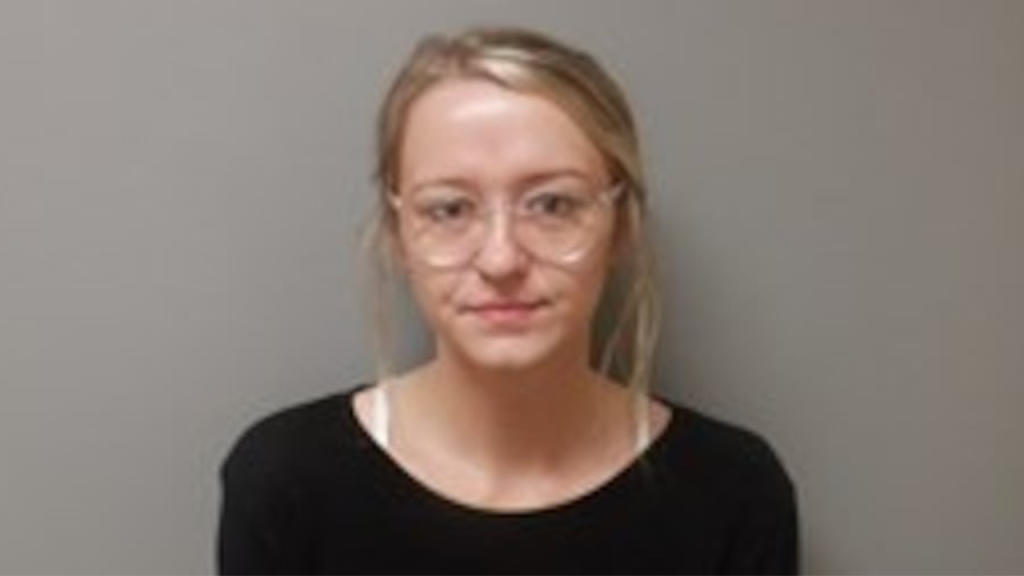The Case of Caitlin Carol Adams: A Nurse Accused of Prescription Fraud
Caitlin Carol Adams, a registered nurse in Arkansas, is facing serious felony charges after allegedly attempting to fraudulently obtain oxycodone pills using a deceased patient’s name. The charges stem from a series of incidents that occurred in January 2024, involving multiple pharmacies and a falsified prescription. This case highlights the ongoing struggle against prescription drug abuse and the potential for individuals in positions of trust, like nurses, to exploit their access to controlled substances. It also underscores the importance of vigilant pharmacy staff in identifying and preventing prescription fraud.
The first incident took place on January 2nd at a pharmacy in Jonesboro, Arkansas, where Adams allegedly used a forged prescription to obtain 120 oxycodone pills. Posing as a current employee of a local nursing home, she claimed the pills were intended for a patient. However, her deception unraveled when pharmacy staff contacted the nursing home, only to discover Adams had been terminated the previous day. This initial attempt, though successful at the time, set off a chain of events that would ultimately lead to her arrest.
Undeterred by her near exposure, Adams returned to the same pharmacy just four days later, on January 6th, with another prescription for a significantly larger quantity of oxycodone pills – 180. This time, she used the name of a deceased male patient who had been under her care at the nursing home. The patient had passed away on December 30th, rendering the prescription undeniably fraudulent. Fortunately, the pharmacy staff recognized the discrepancy and refused to fill the order, preventing Adams from obtaining the drugs.
Despite this setback, Adams persisted in her pursuit of the opioid painkillers. She proceeded to a different pharmacy, where she successfully obtained 180 oxycodone pills using the deceased patient’s name. This act of blatant fraud demonstrates a calculated disregard for both the law and the ethical responsibilities of her profession. It also underscores the vulnerability of the system to exploitation, raising concerns about the potential for similar instances of fraudulent prescription activity.
The authorities were alerted to the suspicious activity, and an investigation was launched. On January 24th, Adams was apprehended and booked into the Craighead County Detention Center. She was subsequently released on a $25,000 bond and is awaiting arraignment, scheduled for March 20th. The severity of the charges, three counts of fraud or deceit to procure a narcotic drug-forged prescription, reflects the seriousness of her alleged crimes and the potential for significant legal consequences.
Beyond the criminal charges, Adams’ nursing license is currently under investigation by the Arkansas State Board of Nursing. This investigation could result in the suspension or revocation of her license, effectively ending her career in nursing. This serves as a reminder that professionals in healthcare are held to a high standard of ethical conduct, and violations of that trust can have devastating consequences. The case underscores the critical importance of maintaining the integrity of the healthcare system and protecting patients from those who might seek to exploit their vulnerabilities.
This incident illuminates the multifaceted nature of the opioid crisis, highlighting not only the demand for these addictive drugs but also the lengths to which some individuals will go to obtain them. It also underscores the vital role of pharmacists and other healthcare professionals in identifying and reporting suspicious activity, acting as a crucial line of defense against prescription drug fraud. As the investigation continues, the legal proceedings against Caitlin Carol Adams will undoubtedly shed further light on the specifics of her alleged crimes and the extent of her involvement in prescription drug fraud. The outcome of this case will also serve as a deterrent, reinforcing the importance of accountability and ethical conduct within the healthcare profession.

